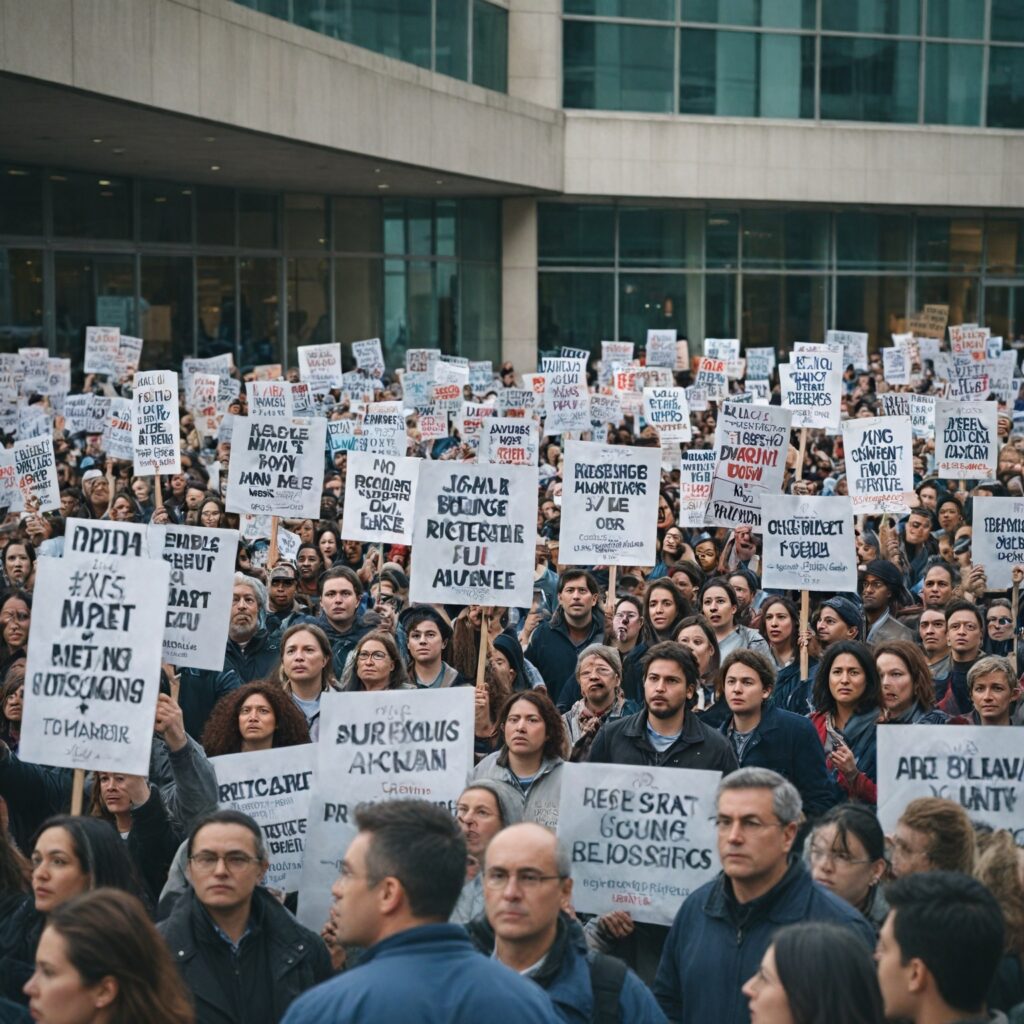
Highlights:
– The BBC is under pressure to reconsider airing this year’s MasterChef series following the sacking of presenters Gregg Wallace and John Torode.
– Claims of misconduct against the hosts have raised concerns, leading to calls for the series to be axed.
– The decision to broadcast the series has sparked controversy and discomfort among viewers and complainants.
The Controversy Surrounding MasterChef’s Airing
The BBC faces mounting pressure to reassess its decision to air the latest season of MasterChef after the dismissal of long-standing hosts Gregg Wallace and John Torode. Concerns regarding misconduct surfaced last year, with more than 40 complaints against Wallace being upheld. Additionally, a claim of Torode using a racist term was substantiated. Despite these revelations, the broadcasting of the new season proceeded, prompting criticism from various quarters.
The contentious airing of the series has sparked outrage, with implications extending beyond the show’s entertainment value. The lack of consultation with complainants and the perceived disregard for upheld complaints have fueled demands for a reevaluation of the decision by the BBC. The move to broadcast the series despite the allegations has not only generated discomfort among viewers but also raised questions about ethical broadcasting practices and support for those who have come forward with complaints.
Implications and Reactions
The decision to air the series has drawn mixed reactions, with some advocating for a more conscientious approach to the matter. Concerns have been voiced regarding the impact on complainants and the message being sent by rewarding alleged misconduct with continued exposure. Calls for re-editing the show to lessen the presence of Wallace and Torode highlight the need for a more sensitive handling of the situation. The unfolding controversy underscores broader issues of accountability, ethical considerations, and support for those affected.
As the debate surrounding MasterChef’s airing intensifies, broader discussions on workplace conduct, accountability in the entertainment industry, and the role of media in addressing misconduct come to the forefront. The implications of the decision not only affect the show’s reputation but also have far-reaching implications for how such situations are managed in the future. Reflecting on the current scenario prompts critical examination of the industry’s response to misconduct allegations and the measures taken to ensure a safe and supportive work environment for all involved.
Conclusion
The controversy surrounding the airing of this year’s MasterChef series highlights deep-rooted issues of misconduct, accountability, and ethical broadcasting practices. The decision by the BBC to proceed with the show despite allegations against the hosts has sparked debate and raised questions about the industry’s handling of such situations. Moving forward, critical discussions on workplace conduct, support for complainants, and the responsibility of media organizations in addressing misconduct are imperative. As the narrative unfolds, it prompts reflection on the broader implications for the entertainment industry and the steps needed to ensure a safer and more respectful work environment for all.
How can media organizations balance the recognition of contestants’ efforts with addressing allegations of misconduct by show hosts?
What measures should be put in place to support complainants and ensure their voices are heard in such situations?
Editorial content by Dakota Sullivan













